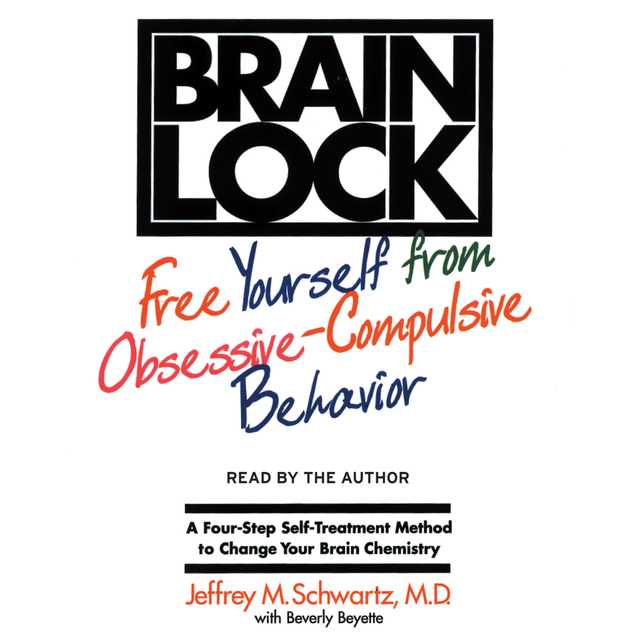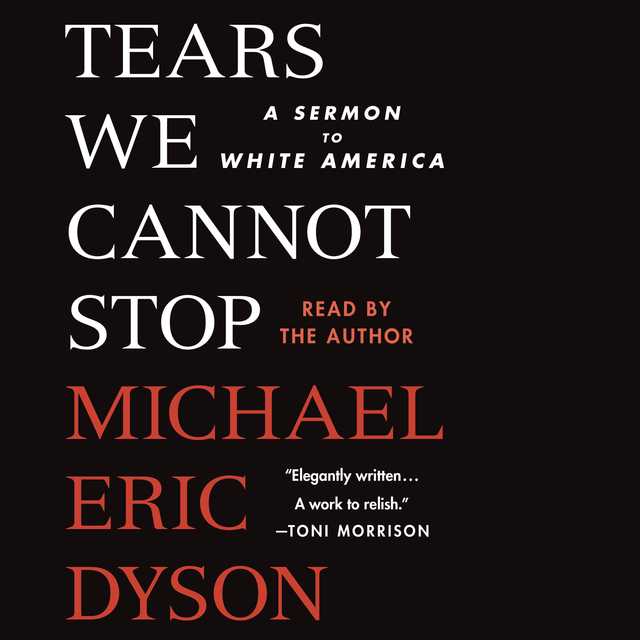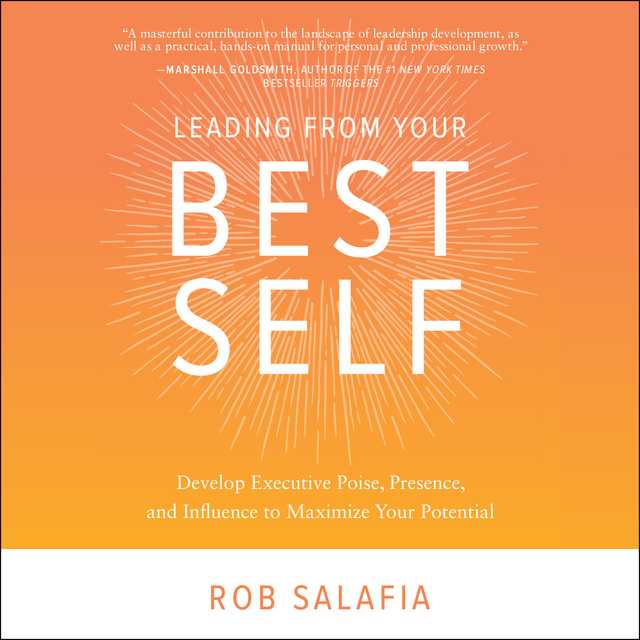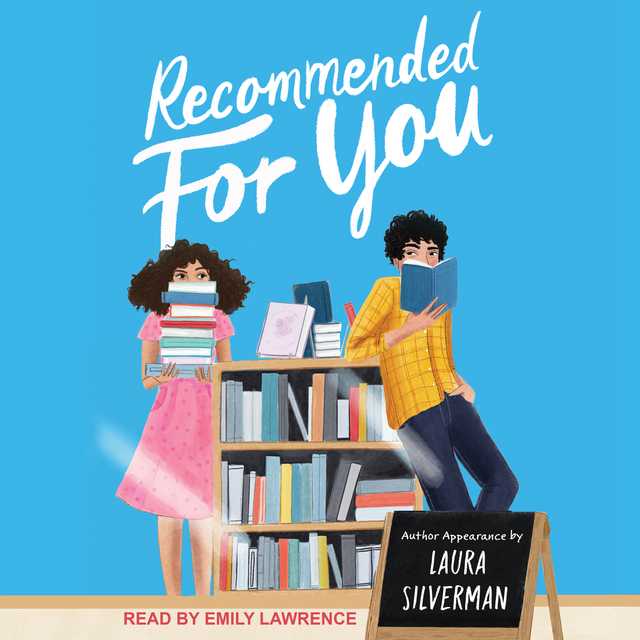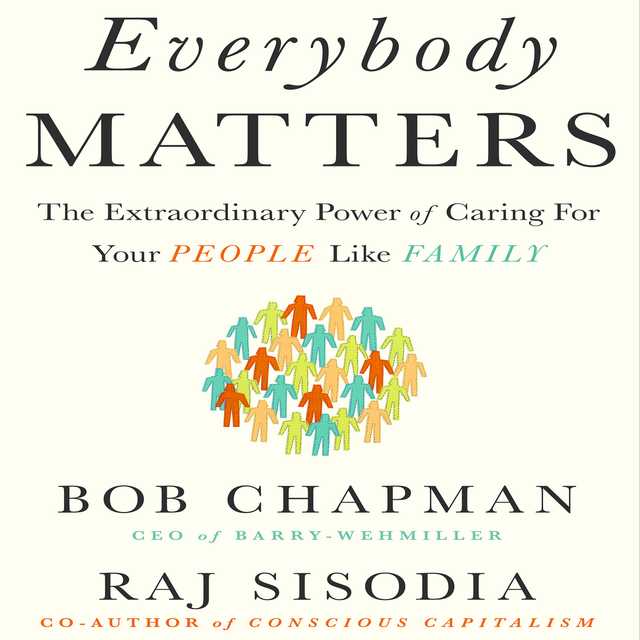Brain Lock Audiobook Summary
The 20th anniversary edition of the definitive classic on defeating obsessive-compulsive behavior, with all-new material from the author.
An estimated 5 million Americans suffer from obsessive-compulsive disorder (OCD) and live diminished lives in which they are compelled to obsess about something or to repeat a similar task over and over. Traditionally, OCD has been treated with Prozac or similar drugs. The problem with medication, aside from its cost, is that 30 percent of people treated don’t respond to it, and when the pills stop, the symptoms invariably return.
In Brain Lock, Jeffrey M. Schwartz, M.D., presents a simple four-step method for overcoming OCD that is so effective, it’s now used in academic treatment centers throughout the world. Proven by brain-imaging tests to actually alter the brain’s chemistry, this method doesn’t rely on psychopharmaceuticals. Instead, patients use cognitive self-therapy and behavior modification to develop new patterns of response to their obsessions. In essence, they use the mind to fix the brain.
Using the real-life stories of actual patients, Brain Lock explains this revolutionary method and provides readers with the inspiration and tools to free themselves from their psychic prisons and regain control of their lives.
Other Top Audiobooks
Brain Lock Audiobook Narrator
Jeffrey M. Schwartz is the narrator of Brain Lock audiobook that was written by Jeffrey M. Schwartz
Jeffrey M. Schwartz M.D. is an internationally-recognized authority on Obsessive-Compulsive Disorder and is the author of the bestseller Brain Lock. He is a Research Professor of Psychiatry at the UCLA School of Medicine.
About the Author(s) of Brain Lock
Jeffrey M. Schwartz is the author of Brain Lock
More From the Same
- Author : Jeffrey M. Schwartz
- Brain Lock, Twentieth Anniversary Edition
- The Mind and the Brain
- Publisher : HarperAudio
- Abraham
- American Gods [TV Tie-In]
- Dead Ringer
- House of Sand and Fog
- Prey
Brain Lock Full Details
| Narrator | Jeffrey M. Schwartz |
| Length | 1 hours 38 minutes |
| Author | Jeffrey M. Schwartz |
| Category | |
| Publisher | HarperAudio |
| Release date | July 28, 2009 |
| ISBN | 9780061962318 |
Subjects
The publisher of the Brain Lock is HarperAudio. includes the following subjects: The BISAC Subject Code is Compulsive Behavior, Psychology, Psychopathology
Additional info
The publisher of the Brain Lock is HarperAudio. The imprint is HarperAudio. It is supplied by HarperAudio. The ISBN-13 is 9780061962318.
Global Availability
This book is only available in the United States.
Goodreads Reviews
Critical
January 18, 2009
I touched the book three times then turned off the oven, again.
Julie
September 11, 2014
I don't quite know how to rate and review Brain Lock, but I'll give it the old college try. Please note that several f-bombs are laced throughout my review. Profanity feels really good when it comes to fighting back. I don't have OCD, but a friend who knows I struggle with claustrophobia and anxiety sent it along with a strong recommendation. And I'm oh-so-glad she did. On the surface, the treatment method for OCD outlined and explained in Brain Lock wouldn't seem to have much to do with treating phobias. Yet, what is a phobia but an obsessive, irrational fear of harmless or even unlikely circumstances? It's not even that, really. A phobia is the fear of losing control when faced with a particular circumstance. For me, it's getting a handle on the ridiculousness of claustrophobia that interferes with my love of travel; specifically, I fucking hate to fly. And, like, I've flown all over the world, north to south, east to west. I've had jobs predicated on the ability to travel all over, frequently, by small, steel tube with no access to fresh air for hours on end. I've been claustrophobic forever, but the flight thing just keeps getting worse. I never, ever get on an elevator, but for the most part I can work around that (recent surgery, I couldn't escape the elevator, but I was on a gurney with drugs in my system. That's how I roll). It's hard, however, to get to Vietnam, Chile, Morocco or Turkey - all places I intend to get to soon - without boarding a plane. Fuck this. I'm tired of carrying the burden of my own brain around. Enough. I love a plan. And now I have one. The first two pages of the journal I'm taking with me to France (YES! FUCK YES! I'M GETTING ON A FUCKING PLANE IN TWO WEEKS) are filled with notes from Brain Lock, including the Four Steps: RELABEL, REATTRIBUTE, REFOCUS, REVALUE. For years, I've Refocused, without even knowing I should be. When I feel a pre-take-off or mid-flight panic attack tickling the nether reaches of my brain, I pull out my book of NY Times Sunday crossword puzzles and get to work. It's hard to panic when you are trying to think of the nine-letter name for a canonized Norwegian king. But I never knew the power of anticipating and accepting that I WILL start to panic, that every fiber in me will be screaming ICANTICANTICANTICANT as I walk down the jetway or when the flight attendants close the doors and I know I am TRAPPED FOR HOURS AND I CAN'T GET OUT. There's power in knowing that horror is going to happen. Knowledge is power, because it puts me in control. The moment I read this thing, this thing about saying, "Oh, hey there, Brain. Yep, there you go, freaking out. What else is new? You've allowed in stupid obsessive thoughts, but sit down and STFU!" (Relabel & Reattribute) a light flickered on. No one ever told me I could say THAT to my brain. No one ever told me that the panic won't go away, but I don't have to DO anything about it. I don't have to try to stop it, I just don't have to ACT on it. I can carry on with the rest of my life (Refocus) and devalue the panic as worthless garbage (Revalue). This alone was worth the price of admission. I see other reviews suggesting that you skip right to the end of the book, where the four steps are explained in a handful of pages, but don't do that. It's really worth getting some background on OCD and relating it to your particular issues, even if it's not a disorder you possess. The case studies I skipped, as well as chapters on relationships to other disorders and living with a loved one who has OCD. I was also a bit taken aback by the frequent references to God. I wasn't expecting that from a behavior therapist. It's fine, really. I'm not a religious person, but I do my fair share of appealing to a higher power. It just caught me off guard. But I was glad to see the strong focus on mindfulness, the nuanced approach to medication (the goal being to alter your brain chemistry, thereby negating the need for medication), and the nods to meditation. I've found a couple of phobia-specific guided meditation practices that have been incredibly helpful and they will be loaded on my iPod, ready for action during that flight. I know I'll be fine. I've made this flight dozens of times. It's never easy, but once, long ago, it was, so I know the power to change my brain and gain control over these false messages is completely within my grasp.Forget the elevators, though. I'll walk.
Elee
February 05, 2014
This book was very helpful and I appreciate all of the information and tips. The only issues I had were:1. I felt that some of this information is outdated, at least in terms of the complexities of OCD and linking a specific compulsion to a specific obsession is not always as cut and dry as he lays it out in the book (and, therefore, doesn’t provide information as to what to do when an obsession doesn’t result in a noticeable compulsion or how to keep from “refocusing” activities becoming compulsions in and of themselves).2. Most of the examples in the book were very, very extreme cases. I wish he had also focused on cases that are still as frustrating and intrusive, but not as blatantly debilitating as the examples he chose.3. He was often extremely redundant and I truly feel the book could have been about a quarter of the length, because no new information really popped up. His structuring was also odd – it seemed that he would just want to add in bits of people’s stories, but the stories or quotes didn’t necessarily correspond to what he was talking about at that moment.However, despite these issues, the information relayed is very useful.
Sassan
January 18, 2013
As someone who suffers from OCD, I can say that this book helped change my life. I no longer take medication (and haven't for years) ever since reading this wonderful book and using the scientifically tested method of "relabel, reattribute, refocus, revalue". In fact, my symptoms have decreased by over 90%! While this book is for OCD, it can also be used for other related disorders, obsessions, and fixations. In fact, Dr. Schwartz shows that brain scans demonstrate by using this method, it helps facilitate neuroplasticity and brain change similar to the way that SSRIs work in the brain. A highly recommended read! :)
Adrian
September 12, 2021
** spoiler alert ** This is a must read for anyone intrested or suffering from any kind of obsessive compulsive behaviour (OCD) .I loved the way this disease is presented somewhere along the lines:Your front part of the brain is constantly producing messages.In the center of your brain there are two little components that act as a transmission to the cortex : the Caudate Nucleus and the Putamen.In a healthy brain they receive a message like "wash your hands" , they let it pass through , the cortex enables the behaviour of washing.Now when another message similar to the first is produced the Caudate Nucleus acts as a filter/gateway. ("dont let this trash message pass since we have alrdy washed hands").In a OCD brain there is an imbalance of chemicals hence the filter is not working properly , it lets all (repeated) messages go through and the sufferer repeats the same behaviour over and over while knowing something is wrong.Add to this the Cygnus that controls your heart and you have a recipe for panic attacks.As the author puts it , an OCD sufferer gets his brain locked in the same behaviour over and over again. Its like instead of an automatic transmision , the one he has is manual , he has to do manual effort -mindful effort to get out of brainlock.The main focus of this book is how to unlock your brain from this compulsive behaviour , basically identifying the disease , attributing your behaviour to it and then refocusing your attention to something else.While at the begining this constant battle is hard , in time it becomes automatic and your gears will begin to shift properly in your brain.OCD is not curable , its an ongoing battle , your mind vs your brain.The clinical cases presented in this book are humbling , people performing multi hour cleaning rituals , filling houses with trash , phobias etc ...people losing decades of their lives up until the point this disease started getting attention.On the bright side , most of these people got alot better and live normal lives after following this routine , without ever relapsing.Aweosme Book !
Danielle
November 02, 2014
After reading this book, I realized I could do one of two things. I could continue to give into my obsessive urges OR I could accept the fact that the chemistry in my brain was off balance and work on changing it and start giving into my own urges.If the patients in this book can overcome Obsessive Compulsive Disorder, anyone can.
Fausto
February 11, 2017
I was tempted to qualify it with three stars, but then I thought the information (in my P.V.) was actually, really good. And for people who suffer this disorder, it would be a flashlight in theirs dark and painful path. It´s something more common than smallpox, and I think is good for all people, know (even a few) about this topic. (Maybe a familiar, friend or even you, could be suffering OCD).The issues I found in the book were the constants repetitions, I know they are good to secure knowledge but God!, at one point feels like were there just for fill pages. And the book could be more practical (but actually the last pages summarize the whole steps in a very practical way).I think this book is useful in what is trying to achieve. Give tools to fight the OCD.
Karin
November 26, 2011
Great book for people with ocd. Good explanation of the brain and how and where ocd occurs in the brain. Then 4 steps to overcoming (minimizing, not giving in to the compulsions) ocd. And yes, sometimes that means pills.However, their idea of 'free' is minimizing, handling the ocd. Does not mean ocd disappears for good. It means you can handle it in your life.
Ani
April 08, 2019
Overall, I thought it was helpful, but I didn't like the view of medication and it being a short term crutch. It works well for a lot of people and I think we need to recognize the long term value of it. Definitely will come back to this book and the methods in it. OCD is the friggin worst.
Sonnigirl
February 19, 2019
Great practical advice on how to control OCD thoughts
Adam
July 30, 2021
I’m free
Eric
August 31, 2021
This book was recommended to me by a therapist, and I would definitely recommend it to anyone struggling with any form of OCD. It’s a little dated, but the ideas hold through.
Becca
August 13, 2021
This book actually changed my life. I cannot recommend it highly enough. Over 2 decades of suffering and not even realizing I was dealing with OCD. I am not formally diagnosed (I've been trying to find a good doctor for months now) but whether my issue is actual OCD, or OCD-adjacent, this book worked for me. There are 4 steps of self-cognitive-behavioral therapy the author walks you through. Just knowing the steps wouldn't have worked for me, but the chapters delving deep into the science behind all of this, those really helped me see that I could actually change behaviors and responses that were ingrained in me for decades. Behavioral therapy and exposure response prevention always scared me but this book broke it down and made it actually do-able.For the first time in 25+ years, I can go out and do things without panicking again. :)I can't even truly explain how good that feels.
Corinne
March 15, 2022
actually very helpful. good to hear stories from people with similar experiences.
Joseph
December 29, 2018
It shook me up in a good way that's hard to describe other than being told the way you think about yourself as a diseased person is just wrong. "It's not you, it's your brain' became a mantra. I think it's a balanced theorethical and practical approach to getting around the hairy brain of someone diagnosed with OCD. I was for a few months in which I realized that my OCD was just my state in life and my approach to my practical problems ( like figuring out what to do with myself, who am I, what am I here for). This book was a new breath of life that made it easier to cope with my condition and take practical steps in helping myself. It will push you do it. It's convincing.
Elinor
November 09, 2020
This book changed my life very positively. It was very difficult at first, in fact I spent several weeks trying to muster the courage to actually ACT, and I started with very minor assignments using the 4 step technique described in “Brain Lock”.I am not saying using this technique is easy, because it requires steely determination and a virtual zero tolerance towards OCD thoughts and behaviours. It is effective though once you get the hang of it. “Freedom from Obsessive Compulsive Disorder” is the only other book I would recommend in this field. It is more laboured though and has a less direct approach on getting a hold on OCD.
Todd
June 07, 2019
An outstanding book that has proven very helpful for me in dealing with OCD. I highly recommend it, not only for reading, but for rereading. I've read it three times and highlighted extensively and plan to review the highlights on occasion using the Kindle flashcard option.An outstanding book that has proven very helpful for me in dealing with OCD. I highly recommend it, not only for reading, but for rereading. I've read it three times and highlighted extensively and plan to review the highlights on occasion using the Kindle flashcard option.
Most Popular Audiobooks
Frequently asked questions
Listening to audiobooks not only easy, it is also very convenient. You can listen to audiobooks on almost every device. From your laptop to your smart phone or even a smart speaker like Apple HomePod or even Alexa. Here’s how you can get started listening to audiobooks.
- 1. Download your favorite audiobook app such as Speechify.
- 2. Sign up for an account.
- 3. Browse the library for the best audiobooks and select the first one for free
- 4. Download the audiobook file to your device
- 5. Open the Speechify audiobook app and select the audiobook you want to listen to.
- 6. Adjust the playback speed and other settings to your preference.
- 7. Press play and enjoy!
While you can listen to the bestsellers on almost any device, and preferences may vary, generally smart phones are offer the most convenience factor. You could be working out, grocery shopping, or even watching your dog in the dog park on a Saturday morning.
However, most audiobook apps work across multiple devices so you can pick up that riveting new Stephen King book you started at the dog park, back on your laptop when you get back home.
Speechify is one of the best apps for audiobooks. The pricing structure is the most competitive in the market and the app is easy to use. It features the best sellers and award winning authors. Listen to your favorite books or discover new ones and listen to real voice actors read to you. Getting started is easy, the first book is free.
Research showcasing the brain health benefits of reading on a regular basis is wide-ranging and undeniable. However, research comparing the benefits of reading vs listening is much more sparse. According to professor of psychology and author Dr. Kristen Willeumier, though, there is good reason to believe that the reading experience provided by audiobooks offers many of the same brain benefits as reading a physical book.
Audiobooks are recordings of books that are read aloud by a professional voice actor. The recordings are typically available for purchase and download in digital formats such as MP3, WMA, or AAC. They can also be streamed from online services like Speechify, Audible, AppleBooks, or Spotify.
You simply download the app onto your smart phone, create your account, and in Speechify, you can choose your first book, from our vast library of best-sellers and classics, to read for free.
Audiobooks, like real books can add up over time. Here’s where you can listen to audiobooks for free. Speechify let’s you read your first best seller for free. Apart from that, we have a vast selection of free audiobooks that you can enjoy. Get the same rich experience no matter if the book was free or not.
It depends. Yes, there are free audiobooks and paid audiobooks. Speechify offers a blend of both!
It varies. The easiest way depends on a few things. The app and service you use, which device, and platform. Speechify is the easiest way to listen to audiobooks. Downloading the app is quick. It is not a large app and does not eat up space on your iPhone or Android device.
Listening to audiobooks on your smart phone, with Speechify, is the easiest way to listen to audiobooks.

